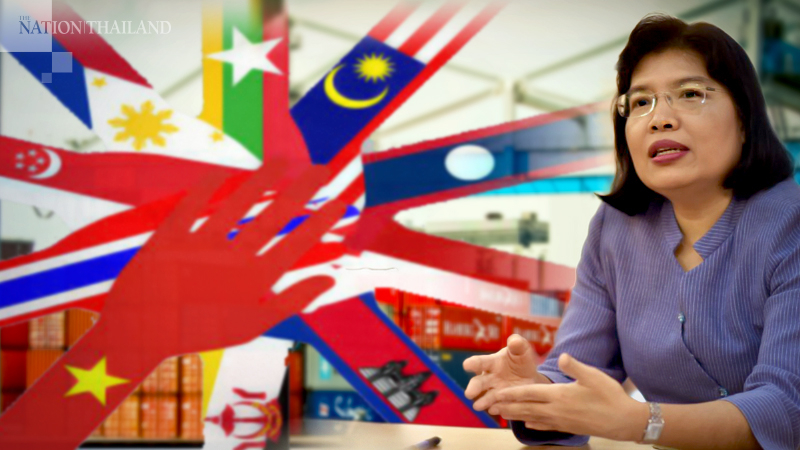Thailand: RCEP agreement to be signed in November and take effect next year
The Covid-19 crisis was not an obstacle to RCEP negotiations as the panel was meeting via video conference to summerise all remaining issues and revise the legal document, she said.
At the 8th RCEP Ministers’ Meeting on August 27, through video conferencing, the meeting confirmed that the agreement would be signed at the 4th RCEP Summit during the 37th Asean Summit in Vietnam in mid-November.
The signing method will be discussed with Vietnam as the chair of Asean in 2020.
“The RCEP Agreement will enter into force only if at least half or six Asean members and half of the non-Asean members (three out of six) enact it. As for Thailand, we must seek approval from the Cabinet. After that, there will be a process to seek approval from Parliament. The deal is expected to come into effect as early as around the second half of 2021.” said Auramon.
RCEP will be the largest free-trade agreement (FTA) in the world, comprising 16 member countries with a combined population of almost 3.6 billion (48.1 per cent of world population), combined gross domestic product (GDP) of more than $28.5 trillion (32.7 per cent of world GDP) and total trade value of over $11.2 trillion (29.5 per cent of world trade)
Fifteen countries, with the exception of India, will sign the agreement. The members have not yet been able to respond to India’s concerns about trade deficit with many members.
Even without India, RCEP will cover a population of more than 2.2 billion (30 per cent of world population), total GDP of more than $25.6 trillion (29.3 per cent of world GDP) and trade value of more than $10.4 trillion (27.4 per cent of world trade)
“RCEP members will welcome India to return to the group because India has been a key member of the RCEP talks since negotiations began in 2012 and believes that India’s participation would help RCEP grow the region,” said Auramon.
She said the RCEP agreement would benefit Thailand more than FTAs in the Asean framework, such as Asean-China, Asean-Japan, or Asean-Korea.
She said that Thailand would at least gain from non-Asean members in many ways, such as China, South Korea and Japan to open up new markets and reduce tariffs on Thai products, such as agricultural products namely tapioca flour, fisheries, fruit juices, pineapple, coconut juice, paper, and automotive parts.
In the past, in the framework of the Japan-Thailand Economic Partnership Agreement and Asean-Japan Comprehensive Economic. Partnership reduced tariffs on goods to Thailand to zero, accounting for approximately 88 per cent of the total inventory. South Korea eliminated tariffs on Thailand by about 91 per cent and China by 94 per cent on all products. In the RCEP framework, Thai products will be get even more tax benefit, although not 100 per cent.
“Another thing that we will have is the origin of Made in RCEP products because it is a big package. There will be more options to accumulate origin of goods from member countries to receive mutual tax benefits, including promoting a multilateral trading system of rules and helping the regional economy recover and grow stably. In addition, in regard to the regulations from RCA to FTAs that were recently made in the latter, there would be new chapters such as electronic commerce,” said Auramon.
RCEP comprises 16 countries: Thailand, Malaysia, Indonesia, Singapore, Philippines, Vietnam, Myanmar, Laos, Cambodia, Brunei, China, Japan, South Korea, India, Australia and New Zealand.
Source: https://www.nationthailand.com/business/30396314?utm_source=category&utm_medium=internal_referral


 Thailand
Thailand




